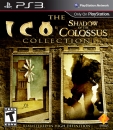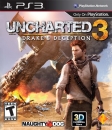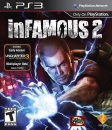ktchong said:
Gnizmo said:
WRPGs give the illusion of choice. In the end you get the same linear story 99% of the time though, with a bunch of side-quests. Maybe I just played the wrong ones, but every time I try one I get the same main story regardless of the "choices" I make plus or minus a few worthless dialogue changes. The story plays out ultimately in the exact same fashion regardless of which worthless side quests you have done. I would kill for a game that offered true choices and actually had a dynamic story.
|
The "illusion" of choice is better than a strictly linear gameplay with no choice.
Some WRPGs do offer some real choices. Let's use Mass Effect as the example again. At one point, your main character has to sacrifice one of the two key characters: Ashley or Kaiden. One of them has to die. The two characters offer very different independent plotlines -- and whoever you sacrifices will not appear in Mass Effect 2. I think that is a very significant choice.
JRPGs often do NOT even let the players choose the main character's name, appearance, class, specializations, starting stats, diagloue and behaviors. That's ZERO choice, absolutely no choices or whatever.
|
All games offer the illusion of choice in some form, while actually offering a limited freedom. I think western RPGs do make more of a point to seem to give choice, but that is down to narrative goals and cultural preferences rather than better/poorer gameplay design.
Western RGPs are more focused on making you feel in control of the character and their assets (am I a marine, a spy, etc, am I good with firearms or explosives or whatever) - however the story is the same. In Mass Effect the choice you mention I'd argue is actually pretty trivial. The context makes it seem important, but it isn't really. It changes nothing much in the end with regard to major outcome.
JRPGs as I said use metaphor and symbolism more, which limits the ability to customize character, etc. greatly. In a JRPG its important that character X looks and behaves in a very specific manner as it will be tied to the themes that character is intended to convey. This inherently limits. Think, as a neutral example, of Greek myth. You can't change the character of say, Icarus, without affecting his symbolism. He has to be the way he is to function within that style of narrative.
Western RPGs are no more flexible in story so far as I've seen, but as in the West it is now fairly unusual to have overly symbolic characters or heavy use of metaphors, it is easier to allow for character customization and the like and therefore this is now common.
TBH the best dynamic story I've played is actually Silent Hill 2, because it's not simple choices at specific times, pick X or Y stuff, but subtle choices made through gameplay that affect the ending - which can be dramatically different, as will your emotional response.
In Silent Hill 2, if you play a certain way and make certain subtle, non telegraphed choices, your character will commit suicide at the end, and it fits perfectly within the narrative.
On the other hand, if you play another way (again, very subtly done) then your character will instead find redemption and survive both uplifted and released from their guilt.
Most games struggle though because they are either too afraid to really commit you to choices that affect the narrative or because they only offer the illusion of choice (such as the one you mention in Mass Effect) which actually doesn't affect the game much at all in the true sense of the narrative, simply alters a couple of cutscenes and how is left standing after the exact same resolution - or what team selection choices you have in a following game.

























































